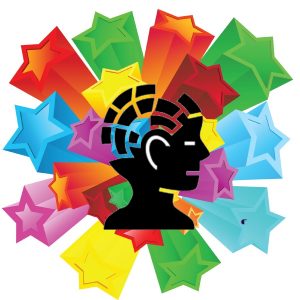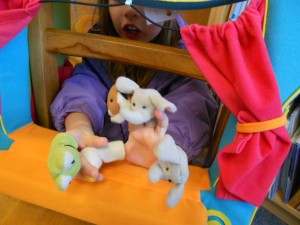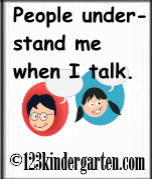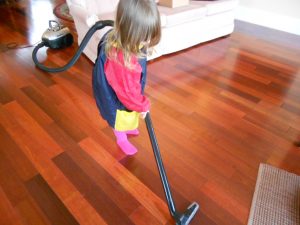What are some ways to give communication skills support? One parent wanted more support for kids with learning and developmental concerns in programs like preschool and kindergarten and daycares. She suggested sign language. Following are other ideas too shared from an earlier post.
-
Read and share books. This is one of the easiest to do. You can snuggle together and read any time of the day. Tuck a few books into a bag for waiting in line, going on the bus, etc.
-
Tell stories. No equipment needed, other than imagination. Make up stories about anything: the shoes that couldn’t wait so they left by themselves, a magic box of crayons, an upside down rainbow. You might find this hard at first but imagination will stretch quickly.
-
Sing songs. Sing favorites, make up silly songs to old tunes. Hum Mulberry bush and sing, “This is the way we vacuum the floor, vacuum the floor, vacuum the floor.”
-
Have conversations. Notice your child is upset about something? Grab 2 stuffies and have them talk about the problem. Use words that your child might need.
-
Stir in words. For everyday situations and tasks include words. At the store, talk about what you need. Ask yourself questions and answer them. Describe the colors, sizes, of fruits and veggies. Doing the laundry, sort the clothes with words, “Okay, shirt. You have dark stripes, so I think you go in the dark pile.” Ask your child questions, and wait for the answer. Sometimes finding the words takes time but a smile invites kids to talk.
-
Sign language isn’t very common but it’s not hard to learn, especially for kids. Not being able to tell adults what you need can be tremendously frustrating for young children. Sometimes, no matter how hard they try, the words just aren’t there yet. Having some basic signs helps. There is a wealth of resources on-line for sign language.
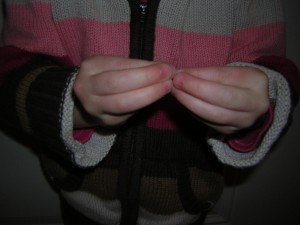 Communication skills support is vital for children to be able to interact with others. It’s no wonder it’s a wish of parents and, like the sign in the photo above, they would like more. Is there a way you can support your child’s communication learning and play today?
Communication skills support is vital for children to be able to interact with others. It’s no wonder it’s a wish of parents and, like the sign in the photo above, they would like more. Is there a way you can support your child’s communication learning and play today?

